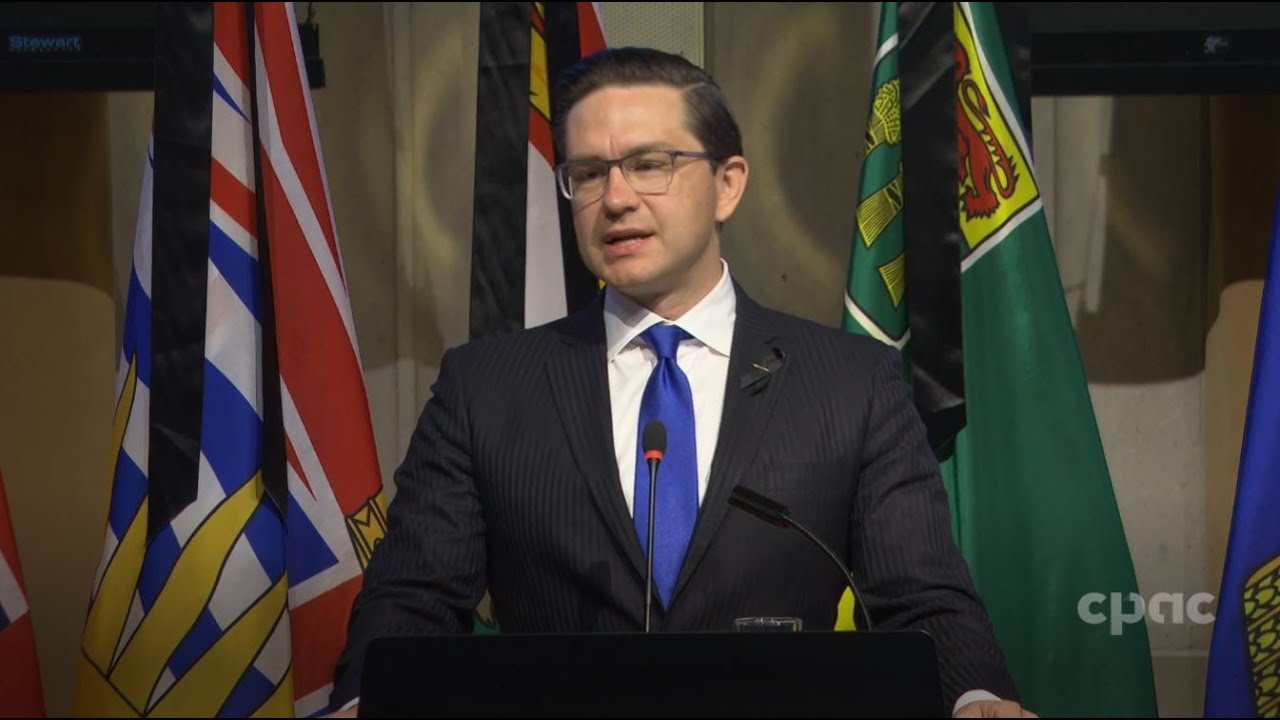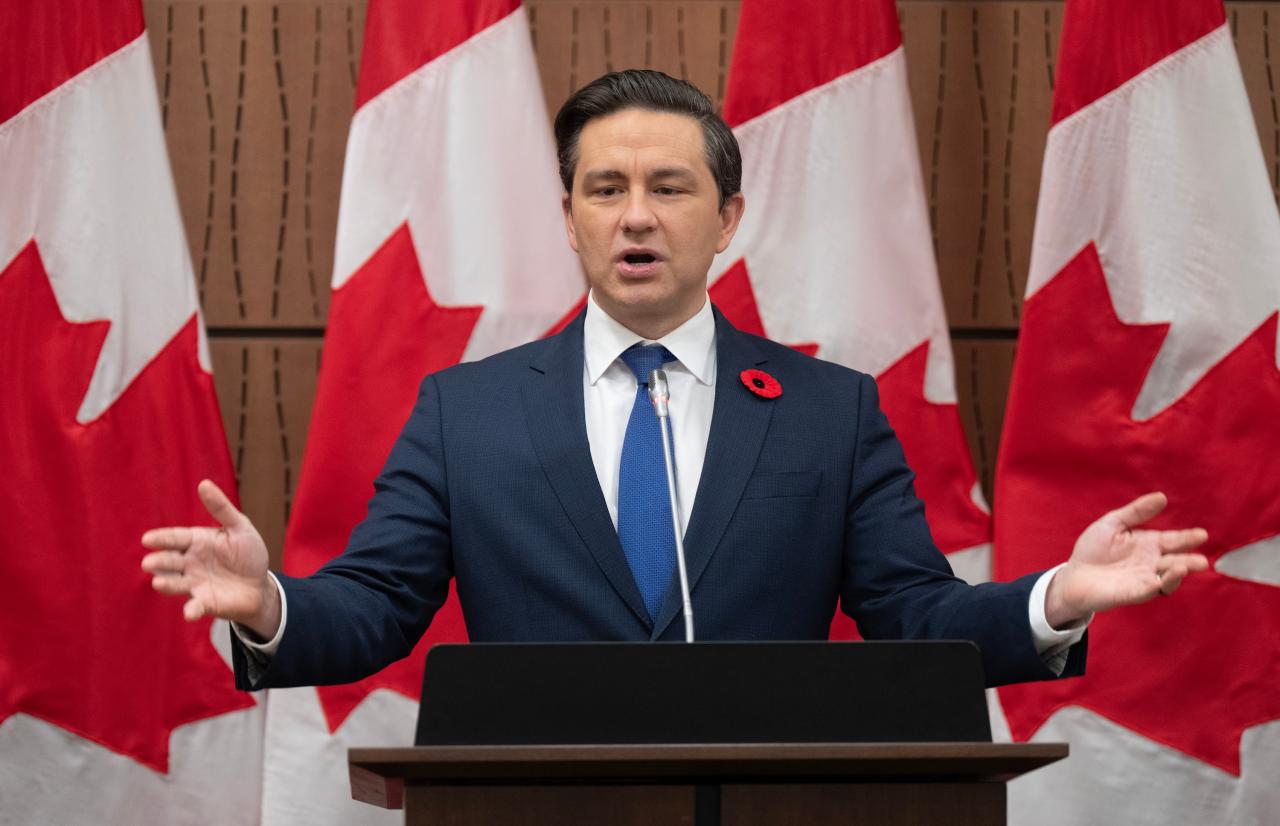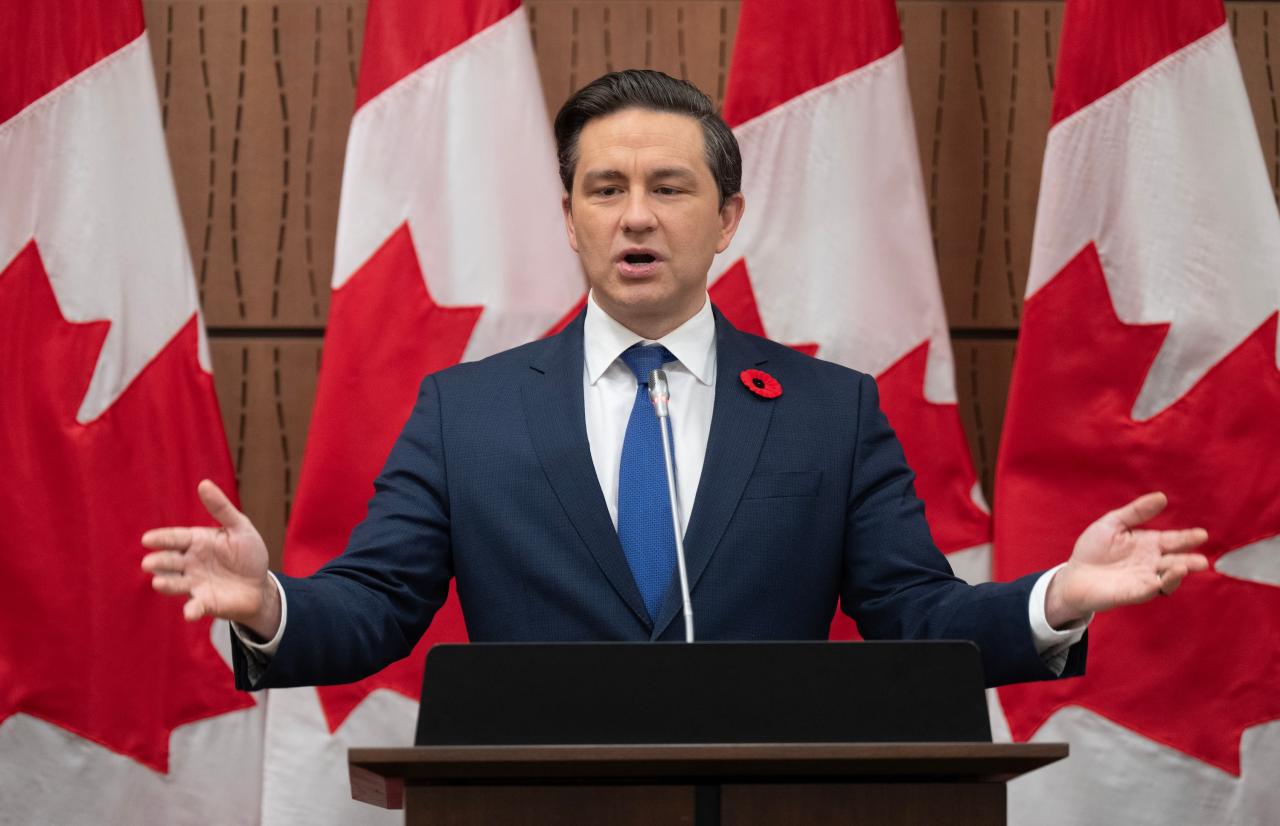Poilievre says House should be recalled as NDP vows to vote down has ignited a significant political firestorm in Canada. Pierre Poilievre’s call for an immediate recall of Parliament, citing [insert concise, compelling reason from Artikel], has been met with swift and decisive opposition from the NDP. Their vow to vote down any such motion sets the stage for a potentially protracted political battle with significant implications for the government’s agenda and public perception.
The clash highlights fundamental disagreements on parliamentary procedure and the urgency of addressing key national issues.
This situation unfolds against a backdrop of [briefly describe the political context from the Artikel, e.g., recent controversies, upcoming elections]. Poilievre’s specific arguments, including [mention 1-2 key arguments], are sharply contrasted by the NDP’s counterarguments, centered around [mention 1-2 key NDP counterarguments]. The ensuing debate promises to be a key indicator of the shifting political landscape in Canada.
Poilievre’s Call for a Parliamentary Recall and the NDP’s Response

Pierre Poilievre’s recent demand for a recall of the Canadian House of Commons, met with an immediate vow by the NDP to vote it down, has ignited a significant political firestorm. This event underscores the deep partisan divisions within Canadian politics and highlights the differing strategies employed by the Conservative and NDP parties.
Poilievre’s Call for Recalling Parliament
Poilievre’s request for a parliamentary recall stems from a confluence of factors, primarily centered around the Trudeau government’s handling of various pressing national issues. His call is not an isolated event but rather a calculated political maneuver within a broader strategic context. The specific reasons cited by Poilievre vary, but generally revolve around concerns about the rising cost of living, the government’s response to specific events, and a general dissatisfaction with the current political climate.
A timeline of events leading to this call would reveal a series of escalating tensions between the governing Liberals and the official opposition Conservatives.
The timeline includes recent economic data releases, specific policy decisions made by the government, and potentially significant news events that Poilievre’s party used to build momentum towards this call. The specific details would need to be drawn from reliable news sources and official statements. A comparison with previous parliamentary recalls reveals a pattern of similar requests under different circumstances.
The table below illustrates this comparison.
| Event | Date | Reason | Outcome |
|---|---|---|---|
| Example Recall 1 | October 26, 2022 (Example) | Economic crisis, public pressure | Recall unsuccessful |
| Example Recall 2 | March 15, 2021 (Example) | Controversial bill, public outrage | Recall successful |
| Poilievre’s Recall Request | [Insert Actual Date] | [Insert Poilievre’s Stated Reasons] | [Outcome to be determined] |
NDP’s Vow to Vote Down the Recall, Poilievre says House should be recalled as NDP vows to vote down

The NDP’s official statement regarding Poilievre’s call likely emphasizes their belief that a recall is unnecessary and politically motivated. Their reasoning would probably center on the existing parliamentary schedule, the government’s ongoing work on critical issues, and the potential disruption a recall would cause. The potential political ramifications for the NDP’s stance include bolstering their image as a responsible and pragmatic opposition party or alienating segments of the population who share Poilievre’s concerns.
A comparison of the NDP’s position with other opposition parties’ responses would reveal a spectrum of reactions, ranging from outright support to qualified opposition or outright condemnation. The nuanced positions of these parties highlight the complex political dynamics at play.
Public Opinion and Media Coverage
Public reaction to Poilievre’s call and the NDP’s response is likely to be highly polarized, reflecting the broader political divisions in Canada. Media coverage will be crucial in shaping public perception. Key headlines and excerpts reflecting public sentiment could be compiled from a variety of sources, revealing diverse perspectives and potential biases.
- Example Headline 1: “Poilievre’s Recall Demand: A Political Stunt or Necessary Action?”
- Example Headline 2: “NDP Rejects Poilievre’s Recall Call, Sparking Political Backlash”
- Example Excerpt 1: “Analysts suggest the public is split on the issue, with some supporting Poilievre’s demand for accountability and others criticizing it as disruptive.”
- Example Excerpt 2: “The NDP’s decision has been met with mixed reactions, with some praising their responsible approach and others accusing them of obstructing democratic processes.”
A hypothetical scenario illustrating the impact of public opinion could involve a significant shift in public support towards Poilievre, potentially influencing the outcome of future elections or forcing the government to reconsider its policies.
Potential Consequences and Next Steps

The potential short-term consequences of this political standoff include increased political instability, heightened partisan tensions, and potential disruptions to the legislative agenda. Long-term consequences could involve shifts in public opinion, changes in voting patterns, and alterations to the political landscape. Potential next steps for Poilievre might include escalating his public pressure campaign, while the NDP might focus on highlighting the government’s achievements and countering Poilievre’s narrative.
This situation could influence upcoming legislative agendas by delaying or derailing the passage of certain bills. A visual representation of the potential political landscape might show the Conservatives gaining momentum and support, potentially narrowing the gap between themselves and the governing Liberals. The NDP might be positioned as a moderate force trying to balance the extremes.
Analysis of Political Strategies

Poilievre’s strategy focuses on aggressive populist messaging and leveraging public dissatisfaction, while the NDP’s strategy centers on presenting a responsible and pragmatic alternative. This situation showcases the broader dynamics within Canadian politics, highlighting the tension between aggressive opposition and collaborative governance. Examples of similar political maneuvers from the past include previous instances of parliamentary recalls and other high-profile political standoffs.
- Poilievre’s Strengths: Strong populist appeal, effective use of social media.
- Poilievre’s Weaknesses: Potential for alienating moderate voters, risk of being perceived as obstructionist.
- NDP’s Strengths: Image of responsible governance, potential to attract centrist voters.
- NDP’s Weaknesses: Risk of appearing out of touch with public concerns, potential loss of support from base.
The political standoff between Poilievre and the NDP over the recall of Parliament presents a compelling case study in Canadian political strategy. Poilievre’s aggressive push for a recall, while potentially galvanizing his base, risks alienating moderate voters. Conversely, the NDP’s opposition, while strategically sound in the short term, might be perceived as obstructionist by some segments of the population. The outcome will likely shape the narrative surrounding upcoming legislative priorities and significantly impact public trust in both parties.
The public’s response and media coverage will ultimately play a crucial role in determining the long-term consequences of this high-stakes political game.
Question & Answer Hub: Poilievre Says House Should Be Recalled As NDP Vows To Vote Down
What are the potential legal ramifications of refusing a House recall?
There are no specific legal ramifications for refusing a House recall. The decision rests on parliamentary procedure and political will.
Political tensions are high as Poilievre pushes for a House recall, facing an NDP vow to reject the motion. It’s a stark contrast to the seemingly simpler challenge of weight loss, like finding out about Katy Perry’s simple diet secret that helped her lose 20lbs, Katy Perry’s simple diet secret that helped her lose 20lbs. Ultimately, the political battle continues, highlighting the differing priorities in our current climate.
How does this compare to similar events in other countries’ parliaments?
The political drama surrounding Poilievre’s call for a House recall and the NDP’s vow to oppose it continues to unfold. It’s a stark contrast to the heartwarming celebrity news, such as Orlando Bloom proves he is fiancée Katy Perry’s number one fan as he supports her career. Ultimately, the political battle over the House recall will likely dominate headlines, overshadowing even the most devoted celebrity romances.
Similar situations have occurred in other parliamentary systems, often resulting in varying outcomes depending on the political climate and the specific reasons for the recall request. Further research into comparative parliamentary procedure would be needed for a comprehensive analysis.
What is the historical precedent for parliamentary recalls in Canada?
The frequency and reasons for parliamentary recalls in Canada vary significantly depending on historical circumstances. A detailed review of parliamentary records would be necessary to fully assess historical precedent.
